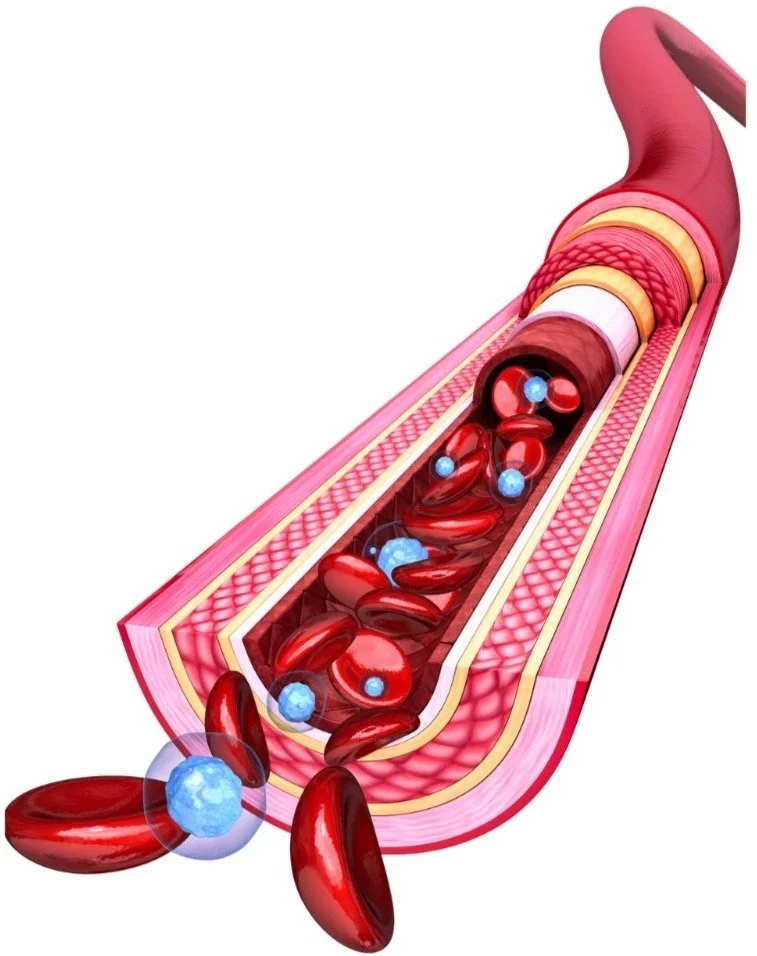Protecting Your Mind: The Blood-Brain Barrier and Mental Health
The brain, our command center, orchestrates our thoughts, emotions, memories, and daily decisions. Though incredibly complex, it is surprisingly delicate—soft, similar to jello or silken tofu, and weighing about 1.5 kilograms. Evolution has developed multiple layers of protection to protect this vital organ and keep it safe.
The skull, cerebrospinal fluid, and meninges (a protective membrane) provide the brain's physical defense and the blood-brain barrier (BBB).
The blood-brain barrier (BBB) acts as an internal shield, regulating what enters the brain and what to keep out. This advanced system is essential for maintaining the brain’s health and functionality.
What Is the Blood-Brain Barrier?
The BBB is a highly selective filter surrounding the brain’s tiny blood vessels. Composed of tightly connected endothelial cells, connective tissue, and nervous tissue, it regulates the passage of substances, allowing essential molecules such as oxygen, glucose, and amino acids to enter while keeping out toxins, pathogens, and harmful compounds.
The endothelial cells of the BBB form a smooth, continuous lining along the brain’s blood vessels, creating a tightly sealed boundary. This sophisticated barrier ensures the brain operates in a stable environment, which is critical for optimal function
Why the BBB Matters for Mental Health
A healthy BBB enables sharper thinking, steadier moods, and greater resilience to stress. But, when its integrity is compromised, harmful substances penetrate, leading to inflammation, cognitive difficulties, and mood disorders. Researchers have linked BBB dysfunction to various neurological and psychiatric conditions, including depression, anxiety, and Alzheimer’s disease.
Factors and Substances That Weaken the BBB
The BBB is sensitive and can be compromised by certain lifestyle factors and substances. Over time, this can lead to increased permeability and exposure to harmful molecules. Here are some common contributors:
Chronic Stress: Prolonged stress elevates cortisol levels, which can weaken tight junctions, making the BBB more permeable.
Poor Diet: Diets high in sugar and processed foods promote inflammation and oxidative stress, damaging the BBB. Sugar (High Glycemic Diets) excessive sugar intake promotes chronic inflammation and oxidative stress, weakening the BBB.
Smoking: Toxins in cigarette smoke, such as nicotine and carbon monoxide, degrade endothelial cells, change the smoothness of the barrier, and increase BBB permeability.
Alcohol: alcohol disrupts tight junctions and contributes to oxidative stress, impairing the BBB’s filtering ability leading to inflammation and increased risk of brain shrinkage
Sleep Deprivation: Poor sleep impairs the glymphatic system, which clears waste from the brain and can weaken BBB integrity.
Environmental Toxins: Heavy metals, lead and, mercury, and air pollutants increase oxidative stress and inflammation, damaging the BBB.
How BBB Dysfunction Triggers Inflammation
When the BBB is compromised, harmful substances can access brain tissue, triggering neuroinflammation.
Pathogen and Toxin Entry: A leaky BBB allows pathogens and toxins to activate microglia, the brain’s immune cells, which release pro-inflammatory cytokines. While this response is protective initially, chronic activation can lead to ongoing inflammation.
Peripheral Immune Cell Infiltration: Normally excluded by the BBB, immune cells from the bloodstream can infiltrate when the barrier weakens, exacerbating inflammation and, in some cases, attacking brain tissue.
Oxidative Stress: Increased permeability exposes the brain to oxidative stress, disrupting neural circuits involved in mood and cognition.
Impact on Mental Health
Depression and Anxiety: Inflammation caused by BBB dysfunction is strongly linked to depression and anxiety. Elevated inflammatory markers like interleukin-6 (IL-6) are commonly found in individuals with these conditions.
Cognitive Decline: Neuroinflammation stemming from a leaky BBB impairs memory and executive function, contributing to Alzheimer’s disease and other cognitive disorders.
Mood Instability: Disruption in neurotransmitter levels and increased inflammation can lead to mood dysregulation and heightened stress sensitivity.
How to Support and Protect the BBB
1. Prioritize a Nutrient-Dense Diet
Eat foods rich in antioxidants, such as berries, leafy greens, and nuts, to combat oxidative stress.
Include omega-3 fatty acids from sources like fatty fish and flaxseeds to support brain function.
2. Manage Stress
Practice relaxation techniques such as mindfulness, yoga, or deep breathing to lower cortisol levels.
Regularly engage in activities that promote emotional balance.
3. Improve Sleep Habits
Aim for 7-9 hours of quality sleep each night to support the brain’s natural repair processes. Establish a consistent sleep routine.
4. Stay Physically Active
Regular exercise improves blood flow, reduces inflammation, and supports vascular health, indirectly safeguarding the BBB.
5. Avoid Harmful Substances
Minimize sugar and processed foods, avoid smoking, eliminate alcohol consumption, and reduce exposure to environmental toxins whenever possible.
Building Mental Resilience Through Brain Health
Caring for the BBB is an investment in mental resilience and overall well-being. A strong and healthy BBB supports sharper thinking, emotional balance, and greater adaptability to life’s challenges. While the effects of lifestyle changes take time, the cumulative benefits contribute to long-term brain health.
The blood-brain barrier is a vital but often overlooked component of brain health. It's normal we don't learn about this stuff, but by understanding its role, recognizing the factors that weaken it, and making informed lifestyle choices, we can protect this essential defense system. Through proper nutrition, stress management, restorative sleep, and regular exercise, we care about BBB and also enhance our mental resilience and overall quality of life.
With Love Pau
Scientific Sources
Journal of Neuroinflammation - Blood-Brain Barrier Permeability and Physical Exercise
This study explores how physical exercise influences BBB permeability and its implications for brain health.
https://jneuroinflammation.biomedcentral.com/articles/10.1186/s12974-019-1403-x
Neurolaunch - Blood-Brain Barrier: Key to Brain Health and Function
An accessible article discussing the importance of the BBB in maintaining brain health and potential therapeutic approaches to restore its function.
https://neurolaunch.com/blood-brain-barrier/
